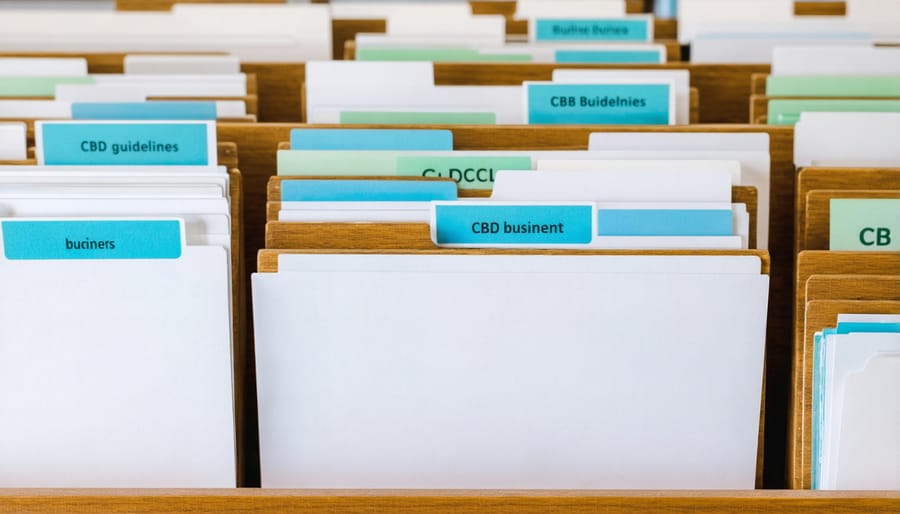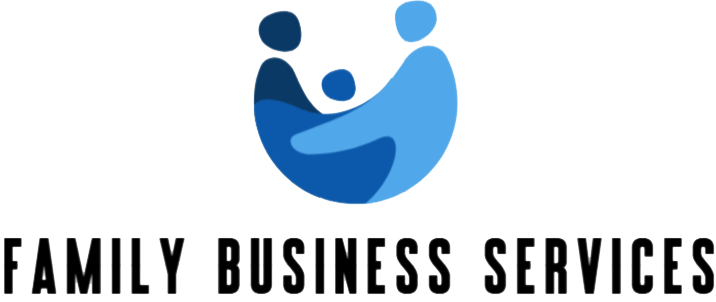Navigate the complex CBD business tax landscape with expert precision while maintaining compliance in Canada’s rapidly evolving cannabis market. For businesses that buy CBD oil Canada and related products, understanding tax obligations is crucial for sustainable growth and regulatory compliance.
CBD businesses face unique tax considerations that demand specialized knowledge and strategic planning. From inventory valuation and cost accounting to excise tax requirements and interprovincial sales regulations, proper tax management directly impacts profitability and legal standing. Recent changes in cannabis legislation have created both opportunities and challenges for CBD entrepreneurs, making professional tax advisory services essential for business success.
This comprehensive guide explores critical tax considerations for CBD businesses, offering practical solutions for compliance, optimization, and long-term financial stability. Whether you’re launching a new CBD venture or expanding an existing operation, understanding these tax fundamentals will help protect your business while maximizing financial opportunities.
Understanding CBD Business Tax Compliance in Canada

Federal Tax Obligations
CBD businesses face specific federal tax obligations that require careful attention and planning. Understanding and maintaining proper cannabis business tax compliance is essential for long-term success in this growing industry.
The Canada Revenue Agency (CRA) requires CBD businesses to maintain detailed records of all transactions, including sales, purchases, and operating expenses. You must register for a Business Number and collect GST/HST if your annual revenue exceeds $30,000. Additionally, CBD businesses need to file regular GST/HST returns and remit collected taxes according to their reporting period.
Income tax obligations include reporting all business income and eligible deductions. It’s crucial to maintain separate business and personal accounts to ensure accurate reporting. CBD businesses should also be aware of specific industry restrictions on expense deductions and maintain supporting documentation for all claimed expenses.
Payroll tax responsibilities apply if you have employees. This includes deducting and remitting CPP contributions, EI premiums, and income tax from employee wages. You’ll need to provide T4 slips annually and maintain accurate payroll records.
Consider working with a tax professional who understands the CBD industry’s unique requirements. They can help you navigate complex regulations, maximize eligible deductions, and ensure compliance with all federal tax obligations while minimizing audit risks.
Provincial Considerations
Operating a CBD business in Canada requires careful attention to provincial tax regulations, as each province maintains its own distinct tax framework. In Ontario, businesses must account for the 13% HST, while Quebec operators need to manage both GST and QST separately. British Columbia applies a 7% PST in addition to the federal GST, creating a combined rate of 12%.
Some provinces offer specific tax incentives for agricultural producers and processors, which may benefit CBD businesses involved in hemp cultivation. Alberta, for instance, maintains a more business-friendly tax environment with no provincial sales tax, though federal GST still applies.
Registration requirements also vary by province. In Manitoba and Saskatchewan, CBD businesses must register for PST if their annual taxable sales exceed provincial thresholds. Maritime provinces follow the HST system, simplifying compliance but requiring careful attention to place-of-supply rules for inter-provincial sales.
Business owners should also be aware of provincial-specific filing deadlines and reporting requirements. Many provinces offer online portals for tax filing and payment, but the processes and schedules differ across jurisdictions. Working with a tax advisor familiar with your specific province’s regulations can help ensure compliance while maximizing available tax benefits and incentives.
For businesses operating across multiple provinces, it’s essential to maintain detailed records of inter-provincial sales and understand the varying tax implications of cross-border transactions within Canada.

Essential Tax Planning Strategies for CBD Companies
Maximizing Legal Deductions
Operating a CBD business in Canada comes with numerous tax-saving opportunities when you understand how to maximize your deductions properly. The key to successful claiming business expenses lies in maintaining detailed records and understanding eligible deductions.
Common deductible expenses for CBD businesses include inventory costs, packaging materials, laboratory testing fees, and quality control measures. You can also claim operational expenses such as rent, utilities, insurance, and employee wages. Marketing and advertising costs, professional memberships, and licensing fees are equally important deductions to consider.
For businesses operating partially from home, you may be eligible to claim a portion of your household expenses, including mortgage interest, property taxes, and utilities. However, these claims must be calculated based on the percentage of your home used for business purposes.
Research and development costs related to CBD product development may qualify for the Scientific Research and Experimental Development (SR&ED) tax credit program, offering significant tax savings. Additionally, investments in energy-efficient equipment or sustainable practices might qualify for environmental tax incentives.
To optimize your deductions:
– Keep detailed records of all business-related expenses
– Separate personal and business expenses clearly
– Maintain receipts and documentation for at least six years
– Consider using accounting software to track expenses
– Consult with a tax professional familiar with the CBD industry
Remember that timing your expenses strategically and understanding the distinction between capital and current expenses can significantly impact your tax position.
Record-Keeping Requirements
Maintaining detailed records is crucial for CBD businesses to ensure tax compliance and smooth operations. Start by implementing a comprehensive bookkeeping system that tracks all business transactions, including sales, purchases, and operating expenses. Keep detailed invoices, receipts, and bank statements organized and easily accessible.
For inventory management, maintain records of all CBD products, including purchase dates, quantities, costs, and selling prices. Document your supply chain relationships and keep contracts with suppliers and distributors on file. Track batch numbers and maintain quality control documentation as these may be relevant for tax purposes.
Digital record-keeping solutions can streamline this process. Consider using accounting software that can generate reports, track expenses, and manage payroll. Store electronic copies of all important documents and ensure regular backups are maintained. Keep records for at least six years, as required by the Canada Revenue Agency.
Essential documents to maintain include:
– Business registration and licenses
– Sales and purchase records
– Employee payroll information
– Equipment and asset documentation
– Insurance policies
– Tax returns and supporting documents
– Bank statements and financial records
– Point-of-sale system reports
Establish a regular review schedule to ensure all records are up-to-date and compliant with current regulations. Consider working with a professional bookkeeper or accountant to set up efficient systems and ensure all necessary documentation is properly maintained. This proactive approach will make tax preparation easier and help protect your business during potential audits.

Common CBD Tax Pitfalls and Solutions
Inventory Valuation
Proper inventory management is crucial for CBD businesses, not just for operational efficiency but also for tax compliance. The Canada Revenue Agency (CRA) requires accurate inventory valuation to determine your cost of goods sold and taxable income. For CBD products, you’ll need to track both raw materials and finished goods using either the First-In-First-Out (FIFO) or weighted average cost method.
Keep detailed records of your inventory purchases, including dates, quantities, and costs. This should include not only the CBD itself but also packaging materials, carrier oils, and other ingredients. Regular physical inventory counts are essential to verify your records and identify any discrepancies that could affect your tax calculations.
When valuing your inventory, include all costs directly related to getting products ready for sale, such as shipping, handling, and direct labor. However, be careful not to include selling expenses or general overhead costs in your inventory valuation. These should be recorded separately as business expenses.
For perishable CBD products, maintain documentation of any inventory write-offs due to expiration or damage. The CRA allows you to claim these losses, but you must have proper supporting documentation. Consider implementing inventory management software to streamline this process and ensure accuracy in your valuations. This will not only help with tax compliance but also provide valuable insights for business planning.
Banking and Payment Processing
Managing financial transactions in the CBD industry requires careful attention to banking relationships and payment processing solutions. Many traditional banks may be hesitant to work with CBD businesses, making it essential to partner with financial institutions that understand and support the industry. Look for banks with experience in cannabis-related businesses and establish open communication about your operations from the start.
Consider implementing comprehensive financial management tools that can help track transactions, monitor cash flow, and generate detailed reports for tax purposes. These systems should integrate seamlessly with your point-of-sale and inventory management software to ensure accurate record-keeping.
When it comes to payment processing, work with providers who specialize in high-risk merchant accounts and understand CBD industry compliance requirements. Many processors now offer solutions specifically designed for CBD businesses, including options for online sales and in-store transactions.
Keep detailed records of all banking activities and maintain separate business accounts for your CBD operations. This separation helps simplify tax reporting and demonstrates transparency to financial institutions and regulatory bodies. Regular reconciliation of accounts and thorough documentation of all transactions will support both tax compliance and banking relationships.
Working with Tax Professionals
Working with a qualified tax professional is crucial for CBD business success, particularly given the complex regulatory landscape. A skilled tax advisor can help you navigate compliance requirements, identify tax-saving opportunities, and maintain accurate financial records while allowing you to focus on growing your business.
Professional tax advisors bring valuable expertise in both general business taxation and industry-specific requirements. They stay current with changing regulations, ensuring your CBD business remains compliant while maximizing available deductions and credits. Their guidance can be particularly valuable during critical business phases such as startup, expansion, or when facing audits.
When selecting a tax professional for your CBD business, consider these key factors:
Experience in the CBD Industry: Look for advisors with specific experience working with CBD businesses. They should understand the unique challenges and opportunities within the sector.
Professional Credentials: Ensure your advisor holds relevant certifications and maintains good standing with professional organizations.
Communication Style: Choose someone who explains complex tax matters in clear, understandable terms and responds promptly to your questions.
Service Range: Verify that they offer comprehensive services, including tax planning, compliance, and strategic advice.
Fee Structure: Understand their billing practices and ensure they align with your budget while providing good value for the services offered.
To make the most of your relationship with a tax professional:
– Maintain organized financial records throughout the year
– Schedule regular meetings to review your business’s tax position
– Be transparent about your business operations and future plans
– Ask questions when you need clarification
– Share industry updates or changes that might affect your tax situation
Remember that investing in professional tax advisory services often pays for itself through tax savings, reduced audit risk, and peace of mind knowing your CBD business meets all tax obligations.
Navigating the tax landscape for CBD businesses requires careful attention to detail and proactive planning. As your business grows, maintaining compliance while optimizing your tax position becomes increasingly important. By working with qualified tax advisors who understand the unique challenges of the CBD industry, you can ensure your business meets all regulatory requirements while taking advantage of available tax benefits and deductions.
Remember to maintain detailed records of all transactions, keep up with changing regulations, and regularly review your tax strategy. Consider implementing robust accounting systems and seeking professional guidance for complex tax matters. This investment in proper tax management can lead to significant savings and help protect your business from potential compliance issues.
For the best results, take action now by:
– Establishing a relationship with a knowledgeable tax advisor
– Setting up proper bookkeeping and accounting systems
– Creating a tax planning calendar
– Reviewing your business structure for tax efficiency
– Staying informed about industry-specific tax updates
The CBD industry continues to evolve, and so do its tax implications. By staying proactive and seeking professional guidance when needed, you can focus on growing your business while ensuring tax compliance. Remember that early planning and regular consultation with tax professionals can help you avoid costly mistakes and maximize your business’s financial success.
Take the first step today by reviewing your current tax strategy and reaching out to qualified advisors who can help guide your CBD business toward long-term prosperity.



